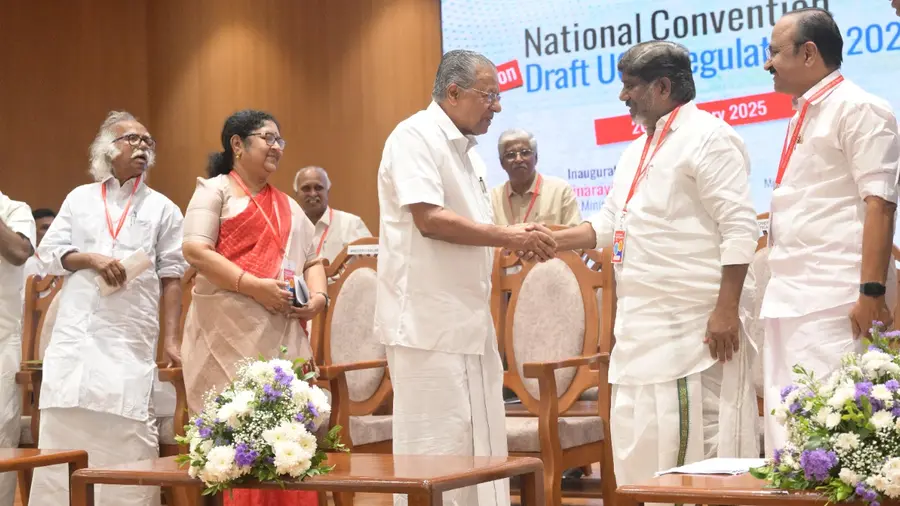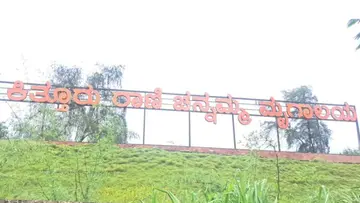National Convention Urges Withdrawal of Draft UGC Regulations, 2025

Thiruvananthapuram: The National Convention on Draft UGC Regulations, 2025, organised by the Department of Higher Education, Government of Kerala, strongly opposed the Union Government’s attempts to centralise control over state universities and diminish the role of state governments in higher education. The convention, attended by Higher Education Ministers or their representatives from Karnataka, Tamil Nadu, Telangana, and Kerala, along with leaders of various political organisations, deliberated on the far-reaching implications of the new regulations released by Union Minister for Education, Sri Dharmendra Pradhan, on January 6, 2025.
The discussions underscored the urgent need for a united front to safeguard the rights of state governments and universities against increasing central authority. Participants voiced grave concerns that the Draft UGC Regulations, 2025, severely undermine the federal structure and weaken the higher education sector. It was highlighted that state governments contribute nearly 80% of the funding for state universities, yet the regulations aim to sideline them entirely in key decision-making processes, including the appointment of Vice Chancellors. The proposed changes regarding Vice Chancellors’ qualifications were also criticised for their vagueness, raising fears that they could lead to a decline in academic standards and the overall quality of higher education institutions. The convention culminated in a series of firm resolutions demanding the immediate withdrawal of the draft regulations and calling for greater collaboration between the University Grants Commission (UGC) and state authorities.
Key Resolutions
● The draft Regulations severely curtail the federal structure of the country by diminishing the role of the states and by increasing central authority in matters related to the state universities.
● As the principal stakeholder and prime investor in the state public universities, the state governments must be given greater role in determining the administrative aspects of the universities.
● The state governments must be given greater role in the appointment of Vice Chancellors, considering the fact that they are the administrative heads of the universities responsible for working in tandem with the state governments. Never in the history of the state universities has the UGC completely taken over the right to constitute the search- cum- selection committee for the appointment of Vice Chancellors. The higher education regulator must desist from such authoritarian measures.
● As the supreme head of academic administration, the Vice Chancellor must have high academic credentials. So the proposal to appoint non-academics as Vice Chancellors must be dispensed with.
● The attempt to bring persons with industrial or commercial background without proper academic credentials as Vice Chancellors will augment the commercialisation of higher education and must therefore be withdrawn.
● The UGC must desist from any attempt to exceed its legislated duty and purpose and must uphold constitutional values by conforming to the confines of subordinate legislation.
● The introduction of notable contributions as a criterion for appointment and career advancement of faculty will introduce arbitrariness into selection, giving undefined authority to selection committees and thus paving the way for allegations of favouritism and graft. These are not quantifiable and cannot be used as a measure of quality. Sowing doubt and aspersion into the selection process, the new criterion will only serve to diminish quality and therefore must be avoided.
● The draft Regulations do not take into consideration the recruitment process already existing in the states involving constitutional bodies such as public service commissions and tend to see institutions as silos. This also leads to an utter disregard for the states’ own regulations that govern the service conditions of the faculty. The UGC must give greater flexibility to the Regulations and grant greater leeway to the states.
● The UGC must desist from all attempt to curtail the universities’ academic autonomy by insisting on academic content as mandatory criteria for compliance. This can only be viewed as a violation of the legislative mandate that the UGC act confers upon it.
● More clarity is sought on the provisions related to contractual appointments, guest faculty appointments, and visiting faculty engagements. The attempt to regulate these with rigidity leads to inability to engage faculty in emergency situations. The states must be given greater freedom in such matters.
● The unprecedented inclusion of punitive provisions on non-compliance or violations of the draft Regulations is excessive and undemocratic and has a colour of authoritarianism and centralisation of power. The UGC must operate on a more democratic platform with greater emphasis on federal principles.
● Indiscriminately imposing all the proposals in the NEP as mandatory and threatening punitive action against violators is dictatorial and detrimental to the spirit of federalism. UGC must honour the states’ right to legislate by putting restraints on its own unbridled authority.
● More emphasis is required in the regulations on industry-academia collaboration to enhance research and innovation ecosystems in the state public universities to help bridge the gap between education and employment.
● Making an entrance examination mandatory for undergraduate courses is detrimental to the states’ efforts to increase GER and hence must not be insisted upon.
● This conference resolves to urge UGC to withdraw the draft Regulations, 2025 immediately and engage with the Universities and state authorities in a more collaborative mood for framing the regulations with greater flexibility and freedom and without impingement on the federal spirit of the Indian Constitution.










0 comments